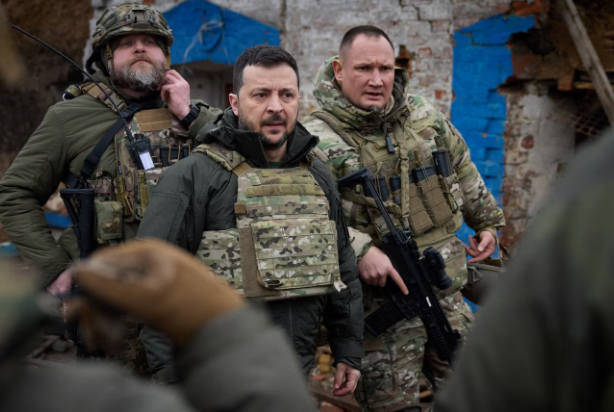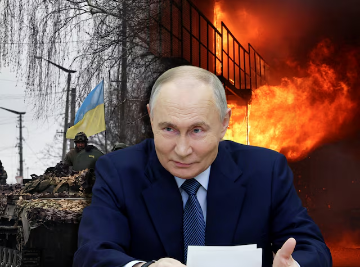The recent Russia Ukraine ceasefire deal has sparked a wave of optimism across the international community. A 30-day interim ceasefire proposed during US-Ukraine talks in Saudi Arabia now awaits Russia’s approval. This development, while not a definitive peace breakthrough, is a significant step forward in reducing tensions and opening diplomatic doors. The evolving geopolitical scenario demands global sincerity and commitment to building a sustainable peace process. While many unresolved issues remain, the world watches closely, hoping for a lasting resolution to one of the most pressing geopolitical conflicts in modern history.
US-Ukraine Ceasefire Proposal Garners Global Attention
The joint statement from the recent US-Ukraine talks highlighted Ukraine’s acceptance of a 30-day ceasefire. The ball now lies in Russia’s court, as it evaluates the terms of this interim peace initiative. Global leaders welcomed this gesture, viewing it as a stepping stone toward diplomatic progress. Countries including France, Greece, and the United Kingdom have echoed sentiments of “lasting peace,” indicating an increased willingness for political resolution.
Russia Responds Cautiously to Peace Proposal
While Ukraine has expressed openness, Russia has adopted a more cautious stance. The Russian administration confirmed it is reviewing the proposal and plans to engage in further talks with the United States. Analysts suggest that Russia’s territorial and security demands are still major hurdles. As such, the implementation of a temporary ceasefire, although a positive move, remains tentative without broader commitments from both parties.

Challenges on the Road to Lasting Peace
Despite the positive signals, several obstacles stand in the way of durable peace. Experts point out that the Saudi meeting did not address core issues like border disputes, disarmament strategies, and long-term security guarantees. Russia Ukraine Moreover, geopolitical interests of key stakeholders such as NATO, the European Union, and the United States complicate negotiations. Without addressing these structural issues, peace talks may falter.
Europe’s Role in Facilitating Diplomacy
European leaders have taken a proactive role, emphasizing their readiness to support future negotiations. European Commission President Ursula von der Leyen affirmed the EU’s commitment to ensuring constructive dialogues. This growing diplomatic involvement may help neutralize escalating tensions and drive collective action for a comprehensive resolution.
privious news–
A New Global Security Vision is Needed
Beyond a ceasefire, the Russia Ukraine ceasefire deal reflects the urgent need for a revamped global security framework. Experts advocate for a model based on mutual respect, non-intervention, and cooperative security. Prioritizing one nation’s security at the cost of another’s instability will only breed more conflict. Sustainable peace demands a balanced approach rooted in equality, mutual benefit, and transparency.Russia Ukraine
Conclusion
The Russia Ukraine ceasefire deal represents a flicker of hope in an otherwise prolonged crisis. However, diplomacy must go beyond temporary solutions. The international community must remain invested in pushing for a comprehensive peace framework that addresses the underlying issues. The path to peace is complex, requiring patience, wisdom, and sincerity from all involved parties. As talks proceed, the focus should shift toward creating a cooperative security model that ensures long-term peace not only for Ukraine and Russia but also for the broader Eurasian region. Frequently Asked Questions (FAQs):
Q1. What is the Russia Ukraine ceasefire deal?
The deal refers to a proposed 30-day interim ceasefire agreed upon in US-Ukraine talks, pending Russia’s acceptance.
Q2. Has Russia agreed to the ceasefire yet?
No, Russia is still reviewing the proposal and has planned further discussions with the US.
Q3. Why is this ceasefire deal significant?
It marks a diplomatic opening for broader peace negotiations and has received positive international response.
Q4. What are the challenges to lasting peace?
Unresolved issues like territorial demands, disarmament policies, and geopolitical interests of global powers hinder long-term peace.
Q5. How can the international community contribute to peace?
By supporting inclusive dialogue, trust-building mechanisms, and a balanced global security framework.
Disclaimer: Russia Ukraine This article is for informational purposes only. The content does not constitute political advice, investment recommendations, or official statements. Readers are encouraged to conduct their own research and consult with relevant experts before drawing conclusions or taking action based on the information provided. The views expressed in this article do not necessarily reflect the opinions of the publisher or its affiliates.





One thought on “Russia Ukraine Ceasefire Deal Shows Hope, But Lasting Peace Demands Global Sincerity:2025”